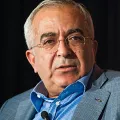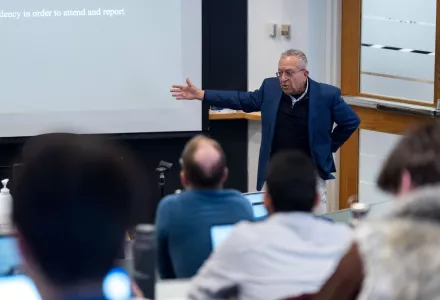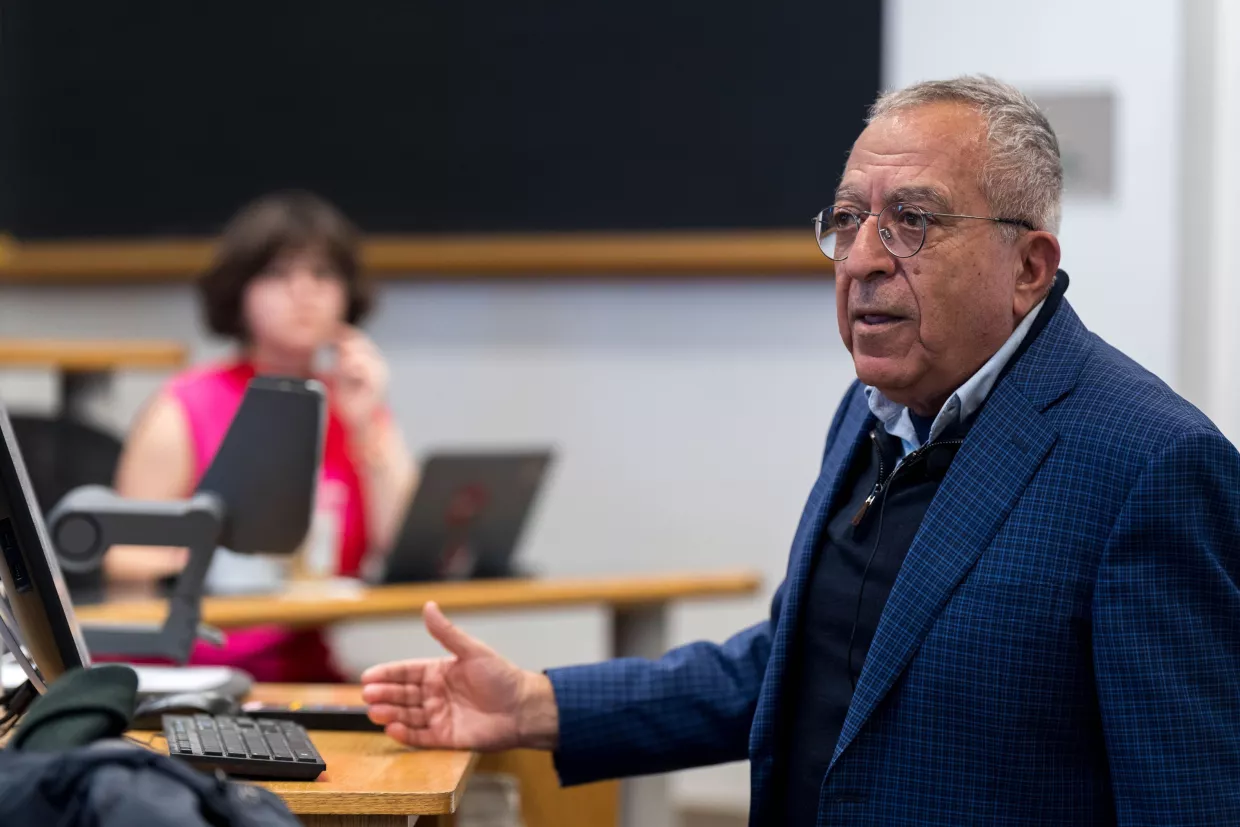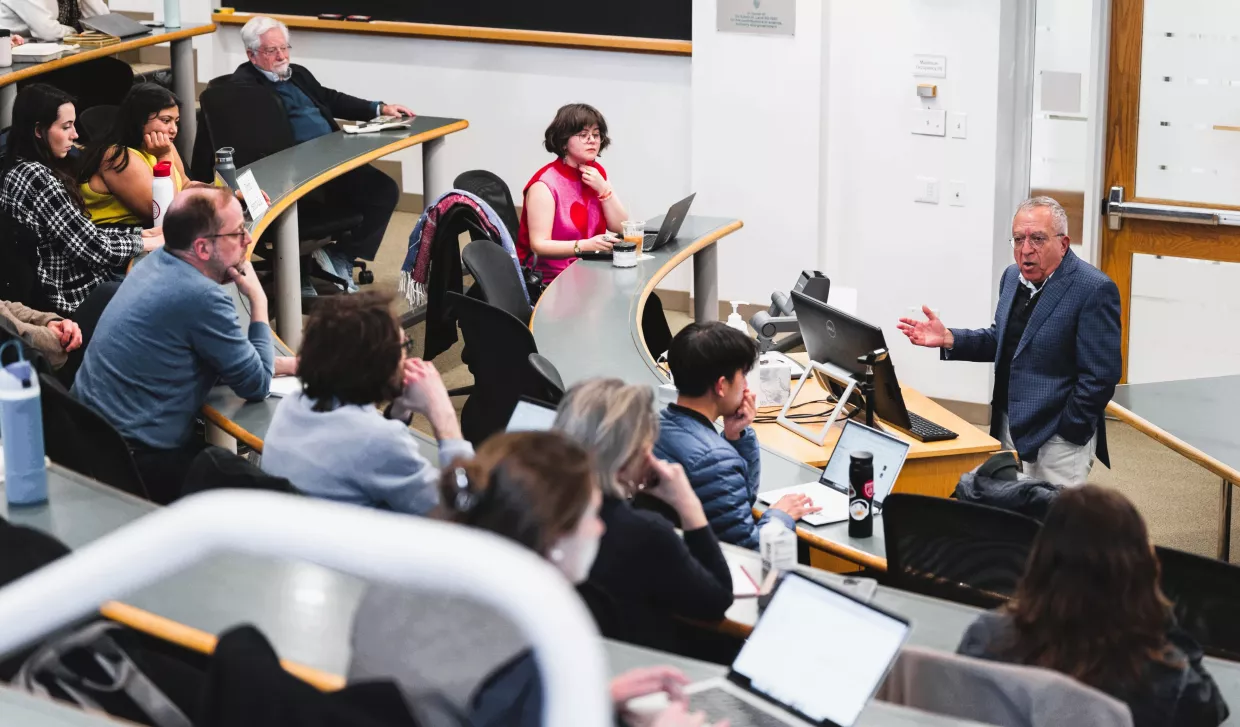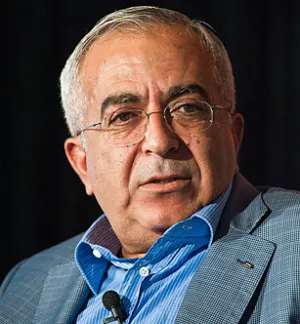This fall, Dr. Salam Fayyad, Senior Fellow at the Middle East Initiative, led a study group focused on sketching a framework for Syria’s future. Over four weeks, the discussions closely tracked the unfolding political and administrative scene in Syria and identified key components of a post-war governance framework aimed at attaining stability, after a brutal civil war and severe international isolation.
Building on his experience in state-building and economic development from his tenure as Prime Minister for the Palestinian Authority and his time with the IMF, Fayyad stressed the need for developing effective strategies for addressing the challenges Syria has faced in the aftermath of the dramatic fall of the Assad regime. These include establishing stability, building trust with the citizens, asserting government authority throughout the country, putting in place a transparent and monitorable framework for transitional justice, and, above all, rebuilding the country’s decimated infrastructure.
The study group deliberations identified two key requirements for success in the elaboration and adoption of such strategies, namely, the formation of an inclusive transitional government committed to good governance, and active engagement and support by the international community.
As political and security developments unfolded in real time, the study group considered that, since the outset of the transition, the balance of risks to that transition has undergone a negative shift for two main reasons. First, the new regime took too long to install a transitional government, which, like the national dialogue that preceded it, ended up not being adequately inclusive. Second, the international community has not responded with the needed sense of urgency.
The study group concluded by stressing the importance of having “diplomatic boots on the ground in Syria.” Specifically, it was argued that it would be important for the United Nations to act as a convener of a policy forum that brings together key international actors and Syrian government representatives on a regular basis to discuss both national policies and the country’s international assistance and support needs, including the all-important issue of sanctions relief—an absolute must for Syria to attain stability, while undertaking the much-needed reconstruction and restoration.


